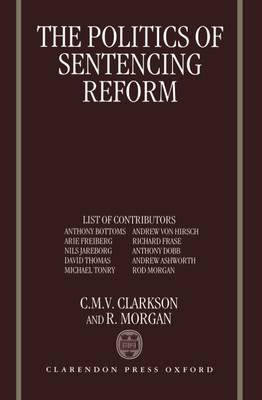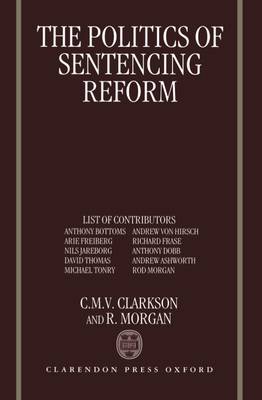
Bedankt voor het vertrouwen het afgelopen jaar! Om jou te bedanken bieden we GRATIS verzending (in België) aan op alles gedurende de hele maand januari.
- Afhalen na 1 uur in een winkel met voorraad
- In januari gratis thuislevering in België
- Ruim aanbod met 7 miljoen producten
Bedankt voor het vertrouwen het afgelopen jaar! Om jou te bedanken bieden we GRATIS verzending (in België) aan op alles gedurende de hele maand januari.
- Afhalen na 1 uur in een winkel met voorraad
- In januari gratis thuislevering in België
- Ruim aanbod met 7 miljoen producten
Zoeken
Omschrijving
Sentencing practice and reform has in recent years assumed a high political profile in many jurisdictions. Changing public attitudes about the relative seriousness of different offenses, evidence of inconsistent governmental concerns about the escalating costs of criminal justice, and support for a return to more traditional conceptions of justice in the wake of loss of faith in individualistic rehabilitative responses to offending, have all given sharper focus to the reformist agenda. This text brings together case-studies of legislative sentencing reform initiatives in the USA and Canada, Australia, Sweden, and England and Wales alongside three essays by leading international authorities on the impetus for and dynamics of change. The picture that emerges is complex. Changing sentencing policy is a highly political process in which, as these case studies show, options are judged to be acceptable as much for their presentational as their substantive characteristics.
Specificaties
Betrokkenen
- Auteur(s):
- Uitgeverij:
Inhoud
- Aantal bladzijden:
- 296
- Taal:
- Engels
Eigenschappen
- Productcode (EAN):
- 9780198258728
- Verschijningsdatum:
- 29/06/1995
- Uitvoering:
- Hardcover
- Formaat:
- Genaaid
- Afmetingen:
- 161 mm x 234 mm
- Gewicht:
- 644 g

Alleen bij Standaard Boekhandel
+ 483 punten op je klantenkaart van Standaard Boekhandel
Beoordelingen
We publiceren alleen reviews die voldoen aan de voorwaarden voor reviews. Bekijk onze voorwaarden voor reviews.









